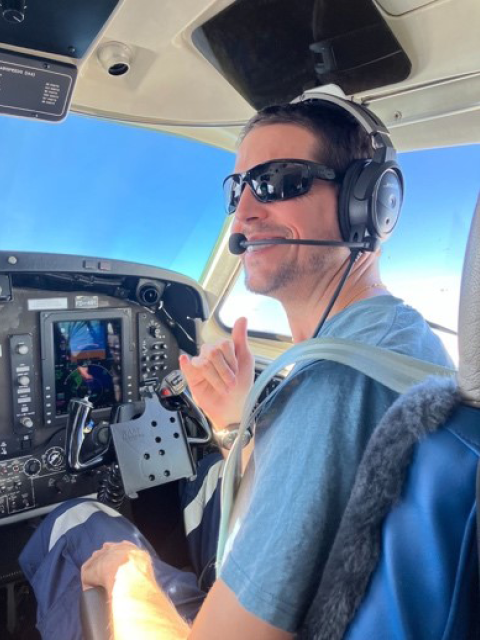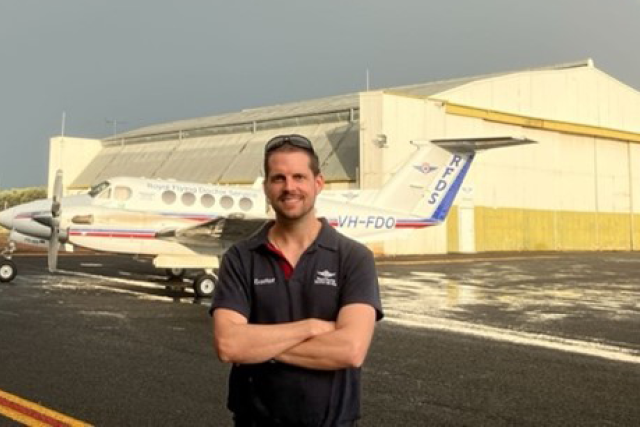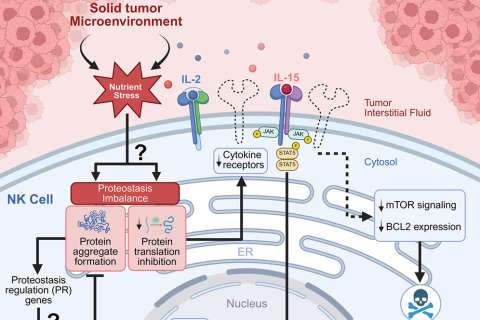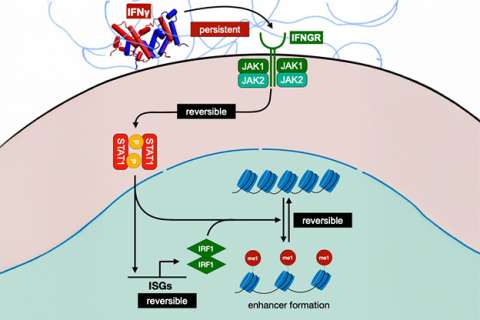A group of UCLA undergraduate students recently returned from a trip to Australia as part of the inaugural UCLA Global Health Travel Study Program.
They were led by Marco Giovannini, MD, PhD, professor-in-residence in the Department of Head & Neck Surgery at the David Geffen School of Medicine at UCLA and a member of the UCLA Health Jonsson Comprehensive Cancer Center; and Dick Quan, MD, UCLA Global Health Faculty co-director.
The primary goal for the group once on the ground in Cairns was a visit with the Royal Flying Doctor Service, one of Australia’s most iconic and essential health care organizations, providing 24-hour emergency medical care and primary health services to people living in remote and rural regions across the country. Using a fleet of specially equipped aircraft, the RFDS brings doctors, nurses and allied health professionals to communities that would otherwise have little or no access to health care – a lifeline that has shaped Australia’s medical landscape for nearly a century.
What was a surprise to the visiting students was that one of the Flying Doctors, Matt Desmond, MD, is a graduate of the David Geffen School of Medicine. The global health connection proved to be an inspiration.
Natalie Carrillo Andrade, a UCLA psychobiology major with a global health minor, spoke with Dr. Desmond, an anesthesiologist, about his background, the challenges of transitioning a medical career from the U.S. to Australia, his role with the RFDS and how his time at the medical school prepared him for his career.

Q: Where did you grow up, and which schools did you attend? What was your dream career as a child?
Dr. Desmond: I grew up all over the country, including Hawaii, several places in Southern California, and several places in the South. My dad was in the military, and so, of course, as a kid my dream was to become a fighter pilot. But I always liked math and science, and I attended LSU for undergraduate work in engineering, and then headed to UCLA for medical school. My anesthetic training was at the University of Florida, and I also did a pediatric anesthesia fellowship at UCLA.
Q: How did you transition from engineering to medicine? That's quite a jump.
Dr. Desmond: Engineering was actually great preparation for medical school. It teaches you how to think for yourself and how to recognize when something doesn't seem right. It does not, unfortunately, prepare one for memorizing a vast number of facts and names that is quite important in medicine. But I felt like I would have more job satisfaction as a doctor than as an engineer. And since there are no doctors in my family, but a number of engineers, it seemed a little more mysterious and interesting to me.
Q: What was the reason for moving to Australia?
Dr. Desmond: There were several factors at play, but from a medical standpoint I wanted to get more experience in the field medicine and transport realms. I had quite a lot of trauma experience and was frustrated that the medical system in the U.S. essentially acts like time equals zero when a patient is rolled into the ED. The truth is that, by then, many of the most important windows of opportunity have already passed. A delay in critical treatment by 30 minutes could cost a trauma patient another week in the ICU, or even their life. Doctors with critical care skills work on ambulances, planes, and helicopters in England, Europe, Latin America, Hong Kong, Australia and New Zealand, but that approach of bringing hospital-level care to the patient is not yet widely adopted in the U.S.
Q: What were the challenges when transferring from the U.S. health care system to the Australian health care system? What did you have to do to get recertified?
Dr. Desmond: It was quite painful, actually, and I learned a lot. I first wanted to get some emergency medicine experience before starting retrieval work. It is something that all Australian doctors have to do quite a bit of, but in the U.S. the specialization starts right after medical school. So, while I felt quite comfortable taking care of a hemodynamically unstable patient or a patient with a serious airway issue, I did not have much skill or confidence in working up an undifferentiated patient. A year in the ED did me a lot of good – acute burn management, relocating shoulders, thinking through chest pain, all core stuff and quite important in field medicine.
But there were other challenges. For example, some medications, like etomidate, don’t exist in Australia. Others, like thiopental – an amazing anesthetic agent – is available in Australia but not the U.S. Ambulances are generally free in Australia, so people call an ambulance for something quite minor, but I didn’t realize this at first – which probably led to a lot of extra testing on my part. Also, Australian English uses different terms that I had to learn.
As far as licensure and being legally permitted to work as a doctor in some capacity in Australia, that isn’t too difficult. But working as a specialist anesthetist, to use the Australian term, is quite a drawn-out process that also costs a small fortune.
Q: How did you become interested in the Royal Flying Doctors Service? Are you interested in aviation in general?
Dr. Desmond: I have had a small love affair with aviation since I was kid. While RFDS is a household name in Australia, I did not know the organization until I moved here. Soon after, I met an ED nurse who worked for them and absolutely loved it. Later I met a few anesthetists that worked for them, plus I got to know some general practitioners in the RFDS who were doing airway currency training in anesthetics, so I started asking questions and looking into it for myself.
Q: What is your approach to interweaving a Western health care approach with the holistic, often nature-based methods of indigenous communities?
Dr. Desmond: I tell all people this, no matter a patient's background: Your medical care and decisions around that are up to you at the end of the day – we as doctors only make recommendations. I didn't realize for a while how often people feel that they are in some way obligated or required to do what doctors, or the medical establishment in general, recommend. It is certainly true that some indigenous people have a different value system that we must respect, even if we would not make those decisions ourselves. So if someone prioritizes going to visit their family over going to the hospital to have some test or treatment done, one has to realize that we cannot force our value system on someone who comes from a very different culture.
Q: What is the most challenging/rewarding part of your career at RFDS?
Dr. Desmond: I would say two things: care coordination and not knowing what will come next. Logistics is a huge part of what RFDS doctors do – making clinical decisions and then seeing what is possible depending on the weather, aircraft availability and capability, cohorting patients from different places on the same flight, etc. For example, we might be on a flight to retrieve a deteriorating patient from a tiny hospital when we get a call on the satellite phone about someone injured by a bull in the middle of nowhere. We often make decisions without all the information we want. It's a bit messy and hindsight is always 20/20, but it sure keeps pushing you and keeps things interesting.

Q: How did your education at the David Geffen School of Medicine prepare you for your current job?
Dr. Desmond: Again, I would say two things come to mind: a solid academic and clinical training, as well as being able to spend time with some of the most amazing people. My classmates were absolutely incredible, and I still look back on that time fondly. UCLA has been inspiring people left, right and center.
Q: Do you have any advice for aspiring or current health care professionals interested in pursuing a globally focused career?
Dr. Desmond: Don't be afraid to forge your own path – whatever you think is worthwhile, will be. Along the way you will undoubtedly learn a lot, meet people who want to help you, meet people who don't want to help you, and even change a little bit yourself. The easiest thing to do is what everyone else has done, but the chance that happens to be exactly what is meant for you is small. So forge ahead, and don't forget to enjoy the ride. It gets to be a small group of people in global health, so connections matter a lot.




